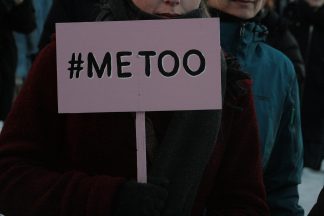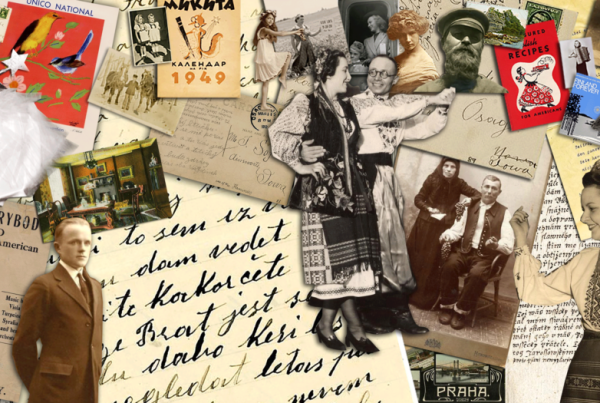by Kimberly Clarke and Karen Carmody-McIntosh

“Oslo Women’s March IMG 4217” is licensed by GGAADD
under CC-BY-SA-2.0
The Me Too movement is a Twitter hashtag and social movement that calls attention to the widespread problem of sexual harassment and assault.
One goal of the Me Too movement is to end the silence about sexual harassment and assault by encouraging survivors to tell their stories. The movement frequently appears in news headlines and has received both favorable and critical coverage.
Since #MeToo began trending, many different types of conversations about sexual harassment and assault have been happening online. Relevant topics include: consent, gender identity, racism, child abuse, workplace harassment, retribution and backlash for reporting sexual harassment, the legal system and due process, and more.
Below, we have compiled some resources to help students think critically about the topic.
Origins and timeline of Me Too
During the fall of 2017, the #MeToo hashtag rose to prominence. It began trending in October when actress Alyssa Milano called upon others to reply “me too” if they had been sexually harassed or assaulted. Since then, people across the globe have used this hashtag to share their stories and express support for survivors of harassment and abuse.
Milano’s tweet was not the first to use the phrase “me too” as part of a campaign to support survivors of sexual assault and abuse. In fact, a Me Too campaign had existed online since 2006. Civil rights activist Tarana Burke created the original Me Too campaign as a way to support young black and brown women who had been hurt by sexual violence.
- Chicago Tribune: #MeToo: A timeline of events
- New York Times: Tarana Burke, Me Too creator
- Time: Silence Breakers
Topics and theory of Me Too
The theoretical framework of Me Too is the political philosophy of feminism. A brief introduction and overview of feminism will be useful for understanding the many topics that are relevant to the Me Too movement.
U of M Resources
Books
- Enloe, C. (2017). The big push : Exposing and challenging the persistence of patriarchy. Oakland, California: University of California Press.
TC Wilson Library General Collection GN479.6 .E55 2017 - Harding, K. (2015). Asking for it : The alarming rise of rape culture–and what we can do about it (First Da Capo Press ed.). Boston, MA: Da Capo Lifelong, A Member of the Perseus Books Group.
TC Wilson Library General Collection HQ1413.V35 A3 2016 - Paludi, M., Martin, J., Gruber, J., Fineran, S., & Ebrary, Inc. (2015). Sexual harassment in education and work settings : Current research and best practices for prevention (Women’s psychology (Westport, Conn.)). Santa Barbara, California: Praeger.
Journal Databases
- GenderWatch
- HeinOnline
- Masterfile Premier
- New York Times | Los Angeles
- PsycInfo
- Women’s Studies International
Journal Articles
- DeMaria, Andrea L. (2018). It’s Not My Place: Formative Evaluation Research to Design a Bystander Intervention Campaign. Journal of Interpersonal Violence, 33(3), 468-490.
- Phipps, Alison. (2018). Rape culture, lad culture and everyday sexism: Researching, conceptualizing and politicizing new mediations of gender and sexual violence. Journal of Gender Studies, 27(1), 1-8.
- Zarkov, Dubravka. (2018). Ambiguities and dilemmas around #MeToo: #ForHow Long and #WhereTo? The European Journal of Women’s Studies, 25(1), 3-9.
Additional resources
Twitter hashtags
Newspaper articles
- Vice: 300,000 men join in with #metoo sexual assault hashtag
- New York Times: Dear men: It’s you, too
- LA Times: A #MeToo moment for the poor and powerless
Magazine articles
- The Atlantic: The movement of #metoo
- Wired: The problem with #metoo and viral outrage
- The New Yorker: #MeToo, #itwasme, and the Post-Weinstein megaphone of social media
- Huffington Post: In response to #metoo, men are tweeting #howiwillchange
- Time: How men are responding to the ‘me too’ campaign against sexual harassment
Websites
- Me Too Movement
- Reactions to sexual harassment, #metoo and #timesup: Real Men Feel hosts a group discussion on sexual harassment and its repercussions
- Time’s Up
Libraries experts
- Kimberly Clarke, Communication Studies | Gender and Women’s Studies
- Amy Riegelman, Psychology
U of M experts
- Eugene Borgida, Psychology
- Jessica A. Clarke, Law School
- Patricia A. Frazier, Psychology
- Annie Hill, Gender, Women and Sexuality Studies
- Melissa A. Polusny, Psychiatry



